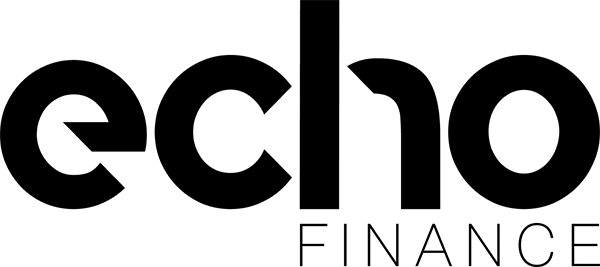Buying a property at auction can be a great way to get your hands on a property at a bargain price. But it can also be a bit of a minefield, with lots of things to consider before you take the plunge. If you're thinking of buying a property at auction in the UK, here's what you need to know about auction finance.
What is auction finance?
Auction finance is basically a short-term loan used by property investors, developers and businesses who are looking to purchase auction property quickly and efficiently. It can be an attractive option for borrowers as it can be arranged quickly and can often be approved on properties in any condition.
Auction finance is typically repaid within a short period of time, usually between 6 and 12 months. However, some lenders may offer longer repayment terms, depending on the borrower’s circumstances.
If you are considering using auction finance to purchase a property, it is important to seek expert advice from an experienced advisor to ensure you get the best deal possible.
At Echo Finance, our team of experts have many years of experience in arranging auction finance and can help you to find the right loan for your needs. As a whole of market broker, we have access to a wide range of specialist lenders and can compare the market to find you the most competitive deal.
For more information about our auction finance services, please contact us today.
How does auction finance work?
Auction finance is a type of short-term financing that is used to purchase property at auction. This type of financing is often used by businesses or individuals who plan on reselling the property for a profit. Auction finance typically has a higher interest rate than traditional loans, but can be a good option for those who are able to repay the loan quickly.
Auction purchases generally need to be paid for within 28 days, so it’s important to have your financing in place before you bid on a property.
It’s important to remember that auction finance loans are a short-term solution and should only be used if you are confident you will be able to repay the loan within the agreed timeframe.
What do property auction finance lenders look for?
When considering a loan request, lenders will often look at the following factors:
The value of the property being purchased
The lender will want to be sure that the purchase price of the property is worth at least the amount of money being borrowed.
The borrower’s ability to repay the loan (your exit plan)
The lender will want to see proof of income and assets, as well as a good credit history. They’ll also want to know how you plan on repay the loan.
The purpose of the loan
The lender will want to know what the borrower plans to do with the property after it is purchased.
Deposit
A property auction finance lender will also require that the borrower put down a deposit, usually between 10-35% of the purchase price, but it could be as high as 50% for more risky properties.
How much does auction finance cost?
Auction finance rates will vary depending on the lender, but are typically higher than traditional loans. The interest rate will also depend on the type of property being purchased, the borrower’s credit history, and the length of the loan
Auction finance is a short-term solution, so lenders will often charge a higher rate to compensate for the risk involved. However, if the loan is repaid quickly, the overall cost can be very reasonable.
What is the process for applying for auction finance?
Lenders will want to see evidence of your deposit and exit strategy before they will approve your loan. The more deposit you're able to contribute, the more likely that your application will be approved.
They may also request additional information, such as proof of income and assets, as well as your credit rating. Once you have gathered all the necessary documentation, you can begin the application process. The lender will then assess your application and make a decision on whether or not to approve the loan If your loan is approved, the funds will be released to you typically within 14 days, but this can vary depending on the lender.
How much deposit do I need for auction finance?
Most lenders will require a deposit of at least 10-35% of the purchase price, up to potentially 50% for more risky properties. A higher deposit will usually result in a lower interest rate and may make it easier to get your loan approved
Are there any other costs associated with auction finance?
Yes, there may be additional costs associated with your auction finance deal, such as valuation fees, legal fees, and stamp duty. Most auction houses will also charge a buyer’s premium, which is a percentage of the final sale price. Make sure to factor in all these additional costs when considering whether or not auction finance is right for you.
Types of exit strategy
The most common exit strategy used to repay auction finance is through the sale of the auction purchase. However, other options may be available depending on the borrower’s circumstances, for example, remortgaging to a standard mortgage once the property has increased in value.
Some lenders may also require that the borrower has an alternative exit strategy in place, such as selling another property or investments, in case they are unable to sell the auction purchase. It’s important to have a well-thought-out exit strategy before applying for auction finance, as this will increase your chances of being approved for a loan.
The risks of auction purchases
As with any type of financing, there are risks involved with taking out an auction finance loan. The most common risk is that the borrower is unable to repay the loan and ends up defaulting on the loan. This can result in the loss of property and severe damage to your credit history.
You should also be aware of the following risks:
The property may be worth less than the amount borrowed
If the purchase price of the property is less than the amount borrowed, the borrower will still be responsible for repaying the full amount of the loan.
The auction process can be stressful
The auction process can be fast-paced and stressful, which can result in mistakes being made. It’s important to have all your paperwork in order and to know your maximum bid before entering into an auction.
You may end up paying more for the property than it’s worth
If you’re not familiar with the property market, it’s easy to overpay for a property at auction. It’s important to do your research and consult with a professional before bidding on a property. Auction finance can be a great way to purchase a property, but it’s important to be aware of the risks involved. If you’re not sure whether auction finance is right for you, it’s always best to speak with a professional before making a decision.
What happens if I can't repay the loan?
If you are unable to repay the loan, the lender may take possession of the property. This is why it’s so important to have a solid exit strategy in place before taking out auction finance. If you default on the loan, it will also damage your credit rating, making it difficult to borrow money in the future Before bidding on auction property, it is important to have a clear exit strategy in place. This will increase your chances of being approved for financing and help you to get the best interest rate possible.
At Echo Finance, our team of experts can help you to find the right loan for your needs and guide you through the application process. Contact us today for more information about our auction finance services.
What types of property can I purchase with auction finance?
Auction finance can be used to purchase a wide range of property, including:
- Residential property
- Commercial property
- Industrial property
- HMOs
- Mixed-use property
- Land
Buying property at auction can be a great way to get your hands on a property at a lower price than what you would pay on the open market. You may also find that more unusual properties are available at auction, which can be a great opportunity to purchase a property that would be difficult to find on the open market.
Speak to an expert
If you're thinking of applying for auction finance, Echo Finance can help. We understand the auction process and can guide you through every step of the way. We'll also work with you to find the most competitive interest rates on the market and help you to get the best loan for your needs.
Get in touch with our team of experts today to find out more about our auction finance services.
Find your local adviser

- Residential mortgages: Everything from fixed-rate to tracker mortgages for first-time buyers, homemovers and remortgage borrowers
- Specialist mortgages: For borrowers who fall outside of standard lending criteria, including people with bad credit, self-employed professionals and more
- Later-life lending: Including advice on equity release, mortgages for pensioners and retirement interest only (RIO) mortgages
- Bridging & Commercial: We have specialist advisors on hand for commercial mortgages, bridging loans, development finance and more
- Insurance & Protection: Including life, home and critical illness cover for families and individuals, as well as landlord and business protection insurance
Echo Finance is regulated by the Financial Conduct Authority and is reviewed annually by an independent compliance company. All of our brokers and advisers hold industry-standard qualifications, such as CeMAP, CeRER and DipMap, where required.
We are committed to providing advice through the channels that best suit your needs. Our brokers can provide advice via phone, email, video and web chat from anywhere in the UK, but we also aim to offer face-to-face appointments for those who request them.









